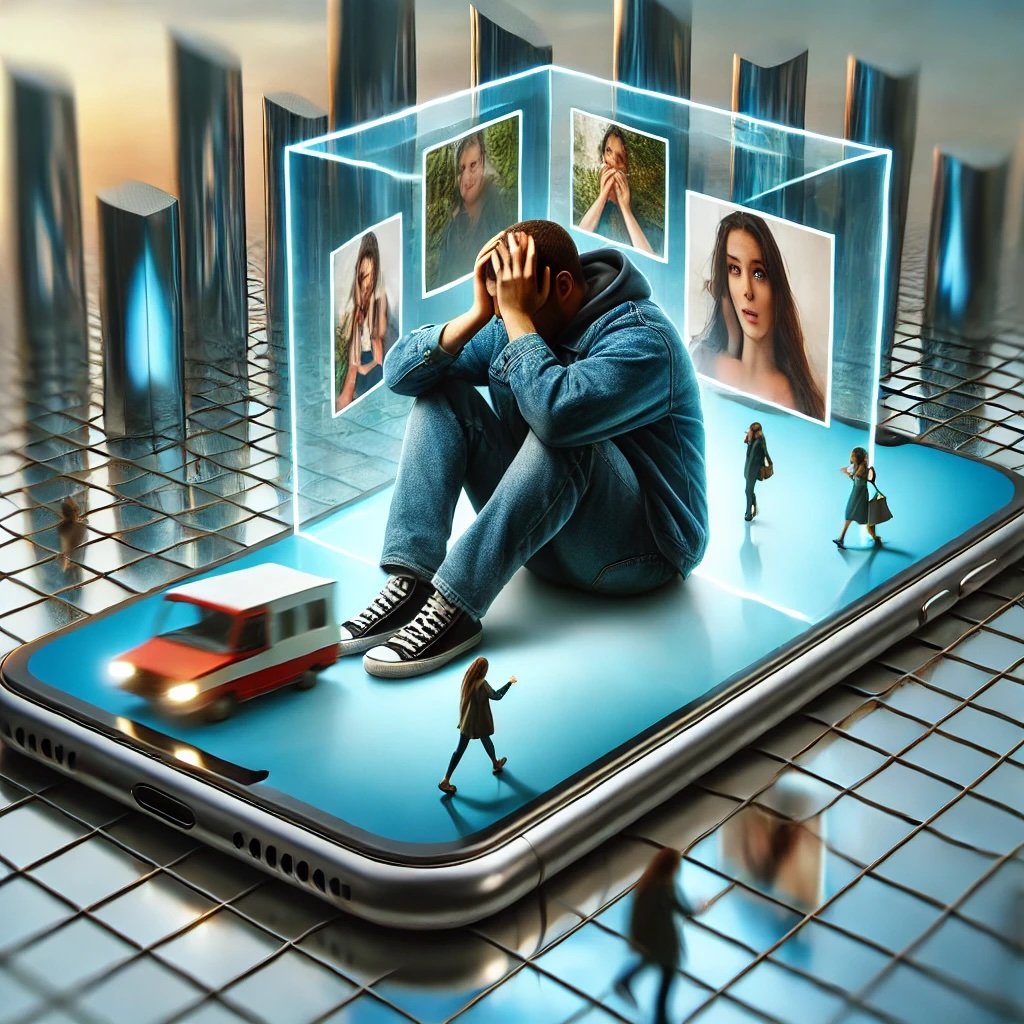Real Life vs. Reel Life: The Hidden Mental Health Toll of Social Media’s Illusions
In today's digital age, we are constantly bombarded with curated snapshots of other people's lives—polished, filtered, and seemingly perfect. Social media has become the ultimate highlight reel, showcasing only the best moments while conveniently hiding the struggles, mundane days, and imperfections that make us human.
But what happens when we start measuring our real lives against these highly curated, often unrealistic portrayals? The impact on our mental health can be devastating.
The Social Media Illusion: A Carefully Crafted Reality
Every scroll through Instagram, TikTok, or Facebook presents us with picture-perfect vacations, flawless selfies, aesthetically pleasing meals, and seemingly effortless success stories. However, what we fail to see are the dozens (if not hundreds) of attempts it took to capture that "perfect" moment, the anxiety behind maintaining an online persona, and the filters that alter reality beyond recognition.
Social media thrives on engagement, and engagement often comes from perfection. Whether it's the illusion of a happy relationship, an enviable lifestyle, or a seemingly effortless glow-up, these portrayals only tell half the story. They omit financial struggles, emotional breakdowns, self-doubt, and failures—the very aspects that make real life, well, real.
The Trap of Comparison: Why It’s Damaging
One of the most dangerous aspects of social media is the endless cycle of comparison. When we see influencers, celebrities, or even our peers living what appears to be a "better" life, it's easy to feel inadequate. The effects of this can be detrimental, leading to:
Low Self-Esteem: The more we compare ourselves to unrealistic portrayals, the more we feel like we are falling short.
Anxiety & Depression: Constant exposure to seemingly perfect lives can make us feel like we are not doing enough, leading to feelings of sadness, frustration, and hopelessness.
Fear of Missing Out (FOMO): Seeing others constantly traveling, partying, or achieving success can create a false perception that we are missing out, even when our lives are fulfilling in their own way.
Distorted Body Image: With the heavy use of filters, editing apps, and unrealistic beauty standards, many struggle with body dissatisfaction and disordered eating behaviors.
Breaking Free: How to Reclaim Your Reality
The good news? We don’t have to be trapped by the illusions of social media. Here are some ways to maintain a healthier perspective:
1. Limit Social Media Usage
Reducing screen time, especially on platforms that trigger comparison, can significantly improve mental well-being. Try setting daily time limits or taking occasional digital detoxes.
2. Follow Realistic and Uplifting Content
Unfollow accounts that make you feel inadequate and instead follow creators who promote authenticity, self-love, and mental health awareness.
3. Remind Yourself: Social Media Is a Highlight Reel
Whenever you catch yourself comparing, remember that what you see online is only a fraction of reality. People post their best moments, not their struggles.
4. Focus on Your Own Journey
Instead of measuring your life against others, focus on personal growth, achievements, and the things that bring you joy in real life.
5. Engage in Mindfulness and Gratitude
Practicing gratitude for what you have, rather than what you think you're lacking, can help shift your mindset from comparison to contentment.
Final Thoughts
Real life is messy, imperfect, and unpredictable—but that’s what makes it beautiful. Social media should be a tool for connection, not a source of self-doubt. By recognizing the difference between real life and "reel" life, we can protect our mental health and appreciate our own unique journeys without the pressure of unrealistic expectations.
So next time you find yourself envying someone's seemingly perfect life online, take a step back and remind yourself: what you see is not the full story.

